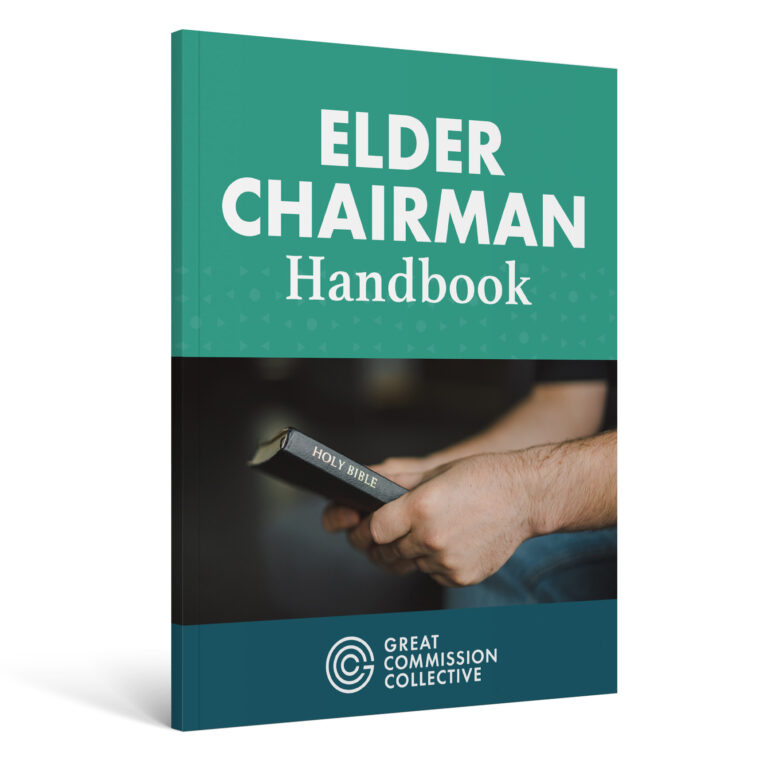Resources
Get equipped to lead your church or church plant alongside other ministry leaders
Events
Events
Training Resources
Plurality Triage Course
This resource is designed to help elders assess and cultivate plurality health, repair plurality trouble, and remedy plurality trauma.
- This training will help you understand the foundation of a healthy plurality and how it impacts the health of the church. At the end of this course, you’ll find additional resources to help build and sustain what you’ve learned about healthy pluralities.
- This training is most effective when all of your elders participate. Each module is self-paced, yet it is designed for engaging in reflection and discussion together.
Resource Kits
Elder Training Kit: Includes twelve training sessions with curriculum, recommended reading, templates, assessments, and more.
Residency Kit: 12 Month schedule to help you organize with resources, readings, and more to improve your rhythm and process as you step into this journey.
Click the button below to visit revdaveharvey.com and explore more information about each kit.
If you are a GCC member church, you can contact laura@gccollective.org to receive your free kit.
Elder Chairman Handbook
This resource aims to equip Elder Chairmen to:
- Understand the role, their responsibilities, and how to execute them.
- Coordinate effective and efficient elder team meetings that produce fruitful outcomes.
- Facilitate accountability and maximum empowerment for their lead pastors.
This is a free resource provided to you by GCC. Get yours today!
Articles & Stories of Impact
See how God is moving in North America through Great Commission Collective churches.

Raising Leaders in Rural Pennsylvania

Discipleship and the Pastor’s Wife

Preaching Prior to An Election

Thinking About Our Witness During the Election
White Papers
Deeper insights and research to equip pastors and leaders to address crucial issues facing today’s church.
Church Leadership Development Framework
Towards a Theology of Leadership in the Local Church
How Does “Leader-Care” Work in GCC?
What Do We Mean By “Collective”?
“Am I Called?” Study Guide
Partners
The Great Commission Collective partners with a variety of organizations designed to equip pastors, leaders, and church planters for various challenges and opportunities in ministry.
GCC Member churches should contact Laura@gccollective.org to receive more information regarding discounts and benefits for any of our partners.
Soul Care Consulting provides training, resources, and consulting for leaders who want to lead healthy. GCC members can receive a 20% discount on soul care resources, as well as participate in retreats, cohorts, and workshops.
Simeon Trust provides frequent, rich opportunities for GCC pastors and planters to further develop their strength in biblical exposition. GCC members receive financial discounts for conference wrap-around workshops, regional workshops, and online courses.
The praying leader coaching experience gives lead pastors a biblical pathway to spiritual leadership that empowers them for greater gospel ministry. GCC members receive personal coaching from Daniel Henderson and a $400 scholarship for this 90-day coaching cohort experience, cutting the cost in half.
Cedarville’s mission is to transform lives through excellent education and intentional discipleship in submission to biblical authority. GCC members receive a 25% tuition discount for online graduate programs and priority for children of planters and pastors for scholarship money. They can also partner through Cedarville University to host a student residency.
Logos Bible Software is a powerful Bible study and sermon prep platform that allows you to study Scripture and consult commentaries, devotionals, Bible dictionaries, and more—all from your computer, tablet, or phone. GCC members are eligible for exclusive deals and discounts.
GCC churches now have access to health plans from GuideStone®. GuideStone has had the honor of serving those who serve the Lord for more than a century. Their team can offer you coverage made for ministry, providing value to your budget as well as shared values.
Korhorn Financial Group (KFG) is a Christian financial management group that works to help churches and individuals provide comprehensive retirement benefits.
Small Church USA has a vision to revitalize churches according to Deuteronomy 3:28a. Through a 12-month learning cycle, they encourage and strengthen lead pastors as they walk through 5 phases of church revitalization: Evaluation, Education, Participation, Activation, and Celebration. The GCC is partnering with SCUSA to come alongside struggling churches to see them revitalized to the glory of God.
Parakaleō believes that wives join fully in the planting mission and that they often face an ocean of brokenness and loneliness with little preparation or support. GCC Partners with Parakaleō to offer training and support for ministry wives.
The Evangelical Council for Abuse Prevention was created to provide awareness, accreditation, and resources to Christian organizations that serve kids protect the vulnerable in ministry. ECAP is partnering with GCC churches to help them make their ministries safe for kids.
Administer Justice is a non-profit that comes alongside churches to help establish Gospel Justice Centers, which both serve the community and provide an on-ramp to the church. A Gospel Justice Center is a legal ministry hosted by a church that opens its doors once a month for 4 hours (usually on a Saturday morning) to provide legal advice through a caring team of volunteers at no cost to the church.
- Equipt
Equipt serves to minimize stress by operationally supporting church plants and missionaries during their pivotal years of start-up. By relieving this burden, it permits leaders to focus on gospel saturation without the distraction of operational management.
Are you wanting to accelerate discipleship within your church and share the message of Christ beyond your four walls? By using production technology, digital marketing, and content creation strategies, Ampersand can partner with you to expand your impact not just on your own church, but to people all across the nation. GCC churches and church planters receive discounts on services.



